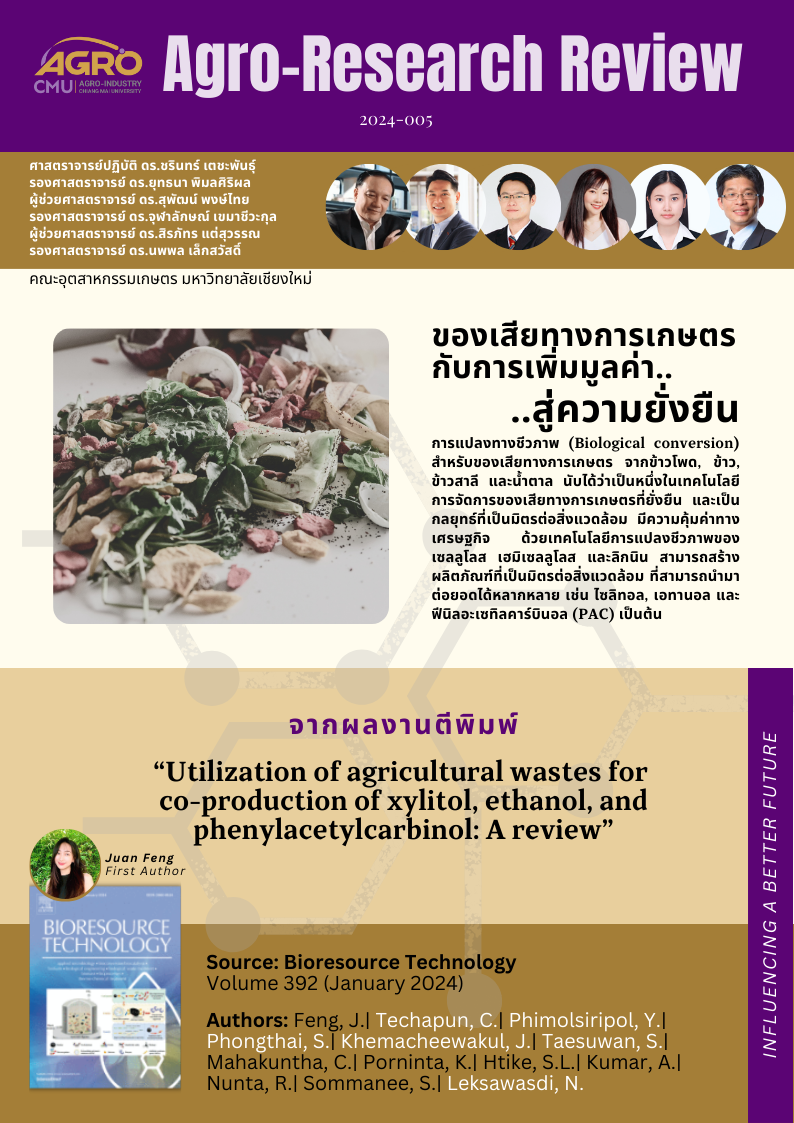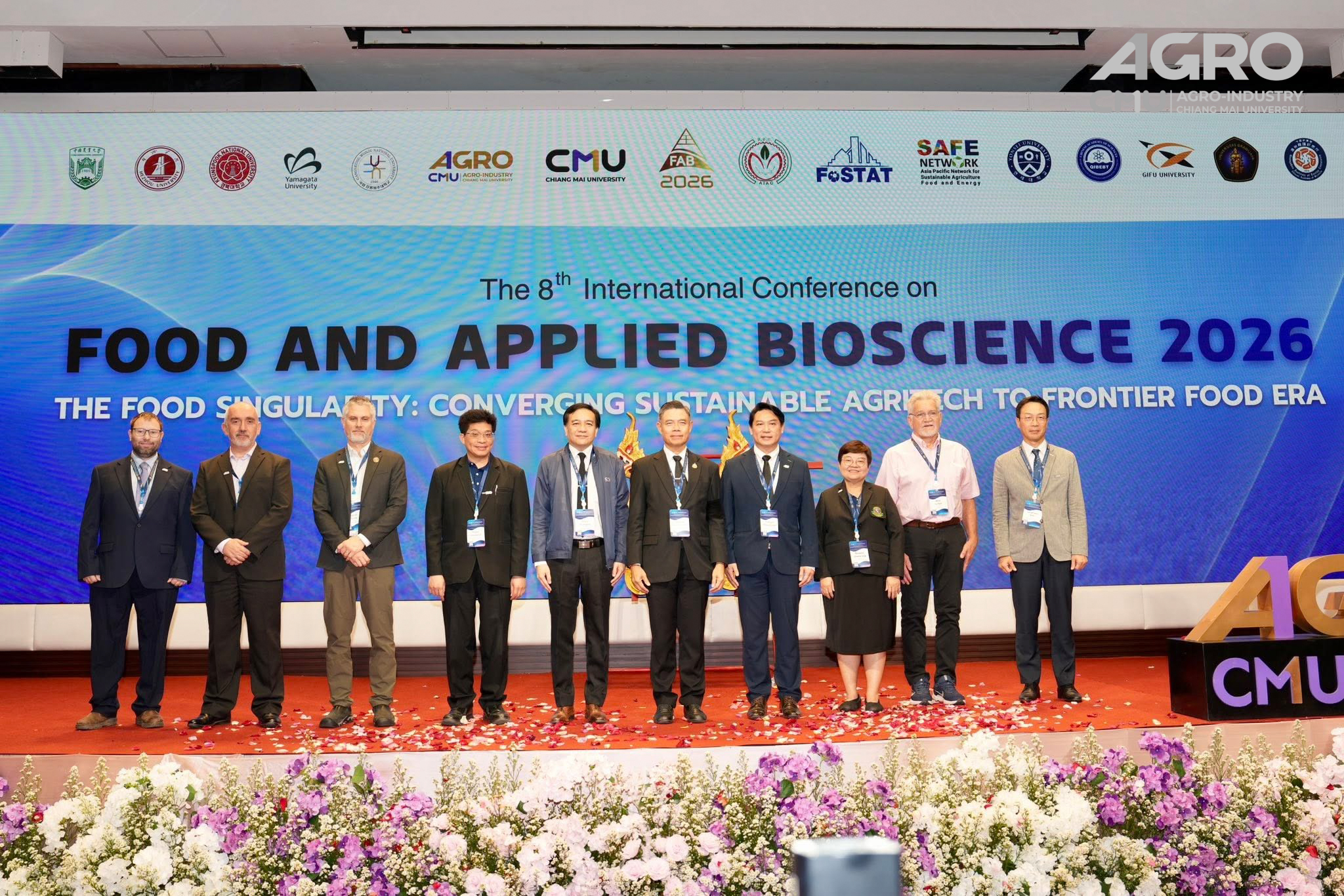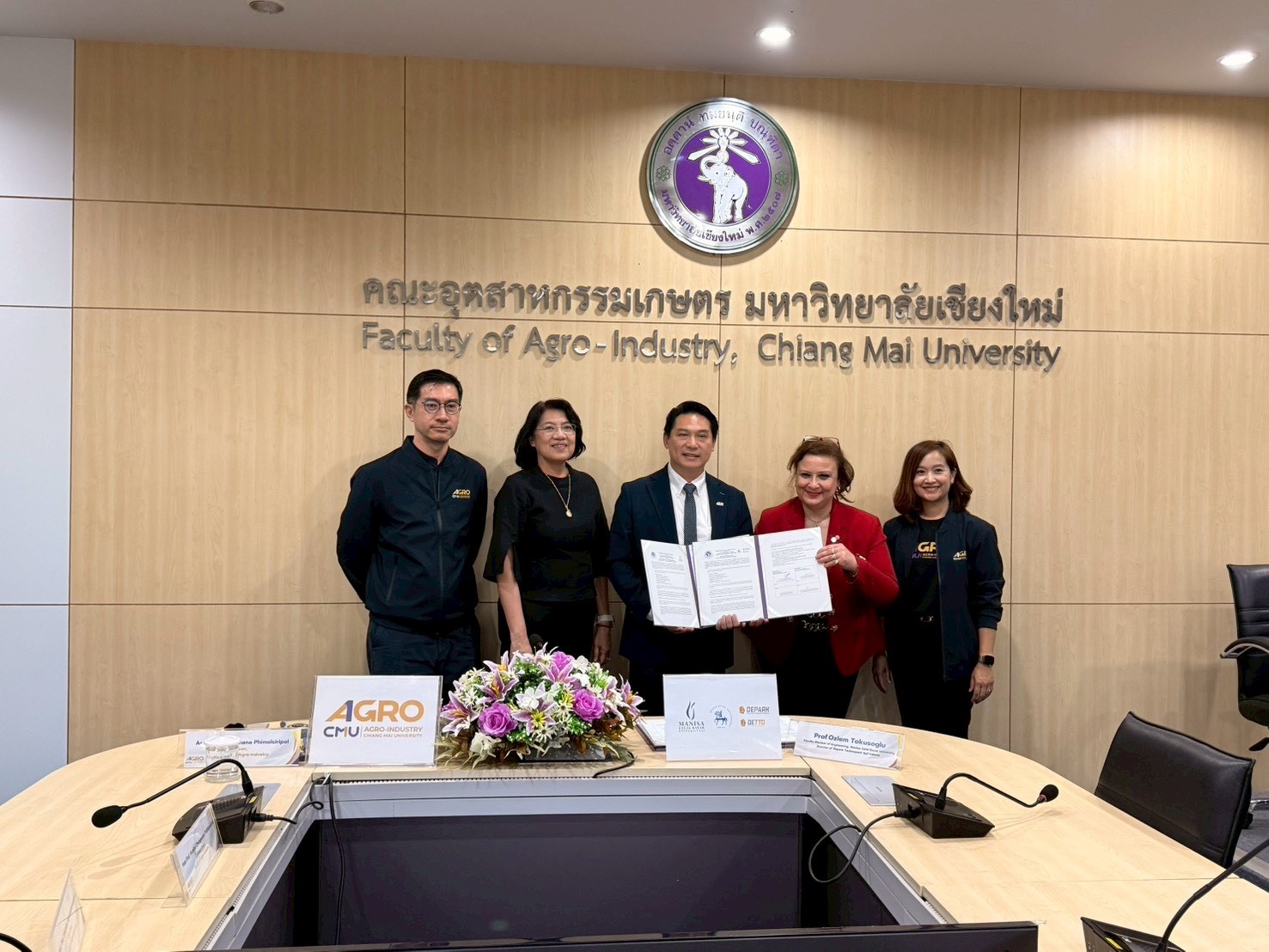
แนะนำงานวิจัย 2024-005 ของเสียทางการเกษตร กับการเพิ่มมูลค่าสู่ความยั่งยืน
การแปลงทางชีวภาพ (Biological conversion) สำหรับของเสียทางการเกษตร จากข้าวโพด, ข้าว, ข้าวสาลี และน้ำตาล นับได้ว่าเป็นหนึ่งในเทคโนโลยีการจัดการของเสียทางการเกษตรที่ยั่งยืน และเป็นกลยุทธ์ที่เป็นมิตรต่อสิ่งแวดล้อม มีความคุ้มค่าทางเศรษฐกิจ ด้วยเทคโนโลยีการแปลงชีวภาพของเซลลูโลส เฮมิเซลลูโลส และลิกนิน สามารถสร้างผลิตภัณฑ์ที่เป็นมิตรต่อสิ่งแวดล้อม ที่สามารถนำมาต่อยอดได้หลากหลาย เช่น ไซลิทอล, เอทานอล และฟีนิลอะเซทิลคาร์บินอล (PAC) เป็นต้น
Biological conversion for agricultural waste from corn, rice, wheat, and sugar is considered one of the sustainable agricultural waste management technologies and an eco-friendly strategy with economic feasibility. Through the biological conversion of cellulose, hemicellulose, and lignin, environmentally friendly products can be created and further developed into various applications, such as xylitol, ethanol, and phenylacetylcarbinol (PAC).
Topic: Utilization of agricultural wastes for co-production of xylitol, ethanol, and phenylacetylcarbinol: A review
Authors: Feng, J.| Techapun, C.| Phimolsiripol, Y.| Phongthai, S.| Khemacheewakul, J.| Taesuwan, S.| Mahakuntha, C.| Porninta, K.| Htike, S.L.| Kumar, A.| Nunta, R.| Sommanee, S.| Leksawasdi, N.
Abstract:
Keywords: Agricultural waste; Co-production; Ethanol; Xylitol; Phenylacetylcarbinol
View at publisher: https://www.sciencedirect.com/science/article/pii/S0960852423013548?via%3Dihub
#อกมช. #agrocmu #CMU




